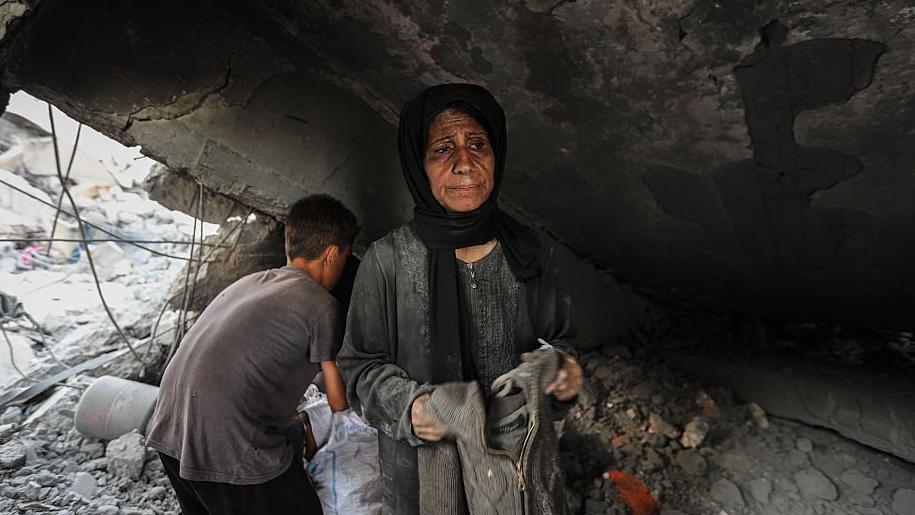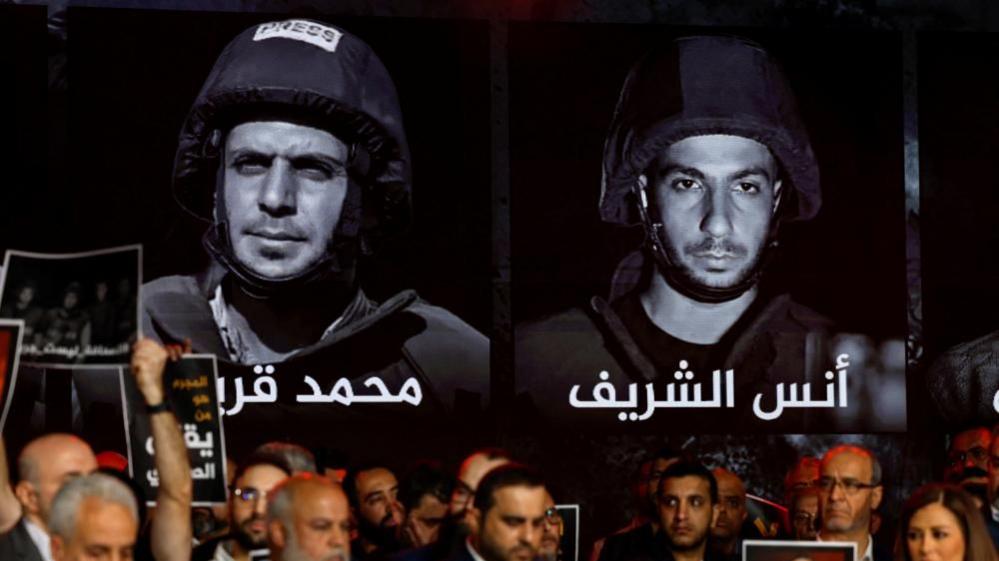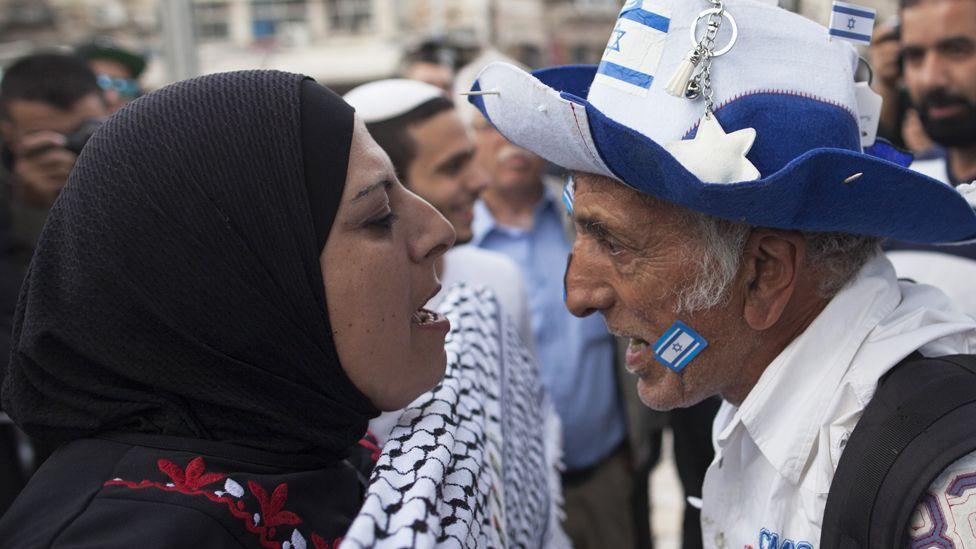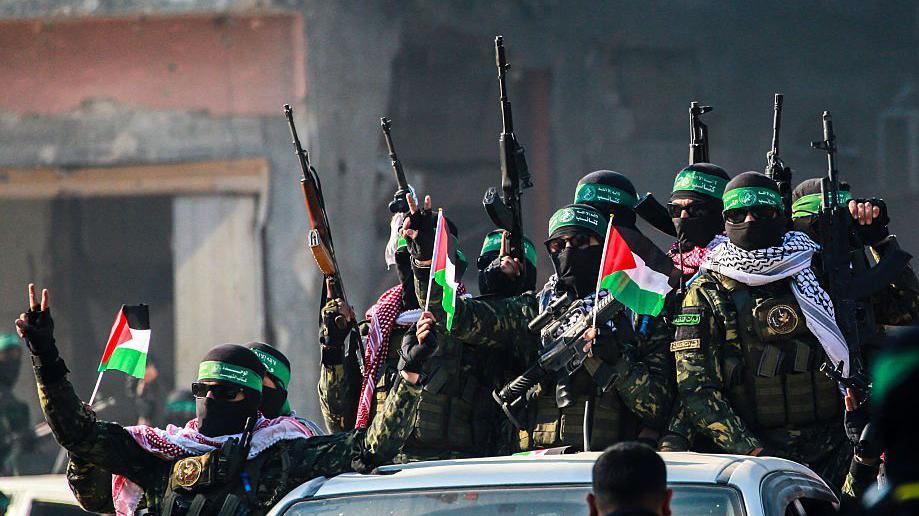BBC and news agencies launch film calling on Israel to allow foreign journalists into Gaza
David Dimbleby narrates appeal for Israel to allow journalists access to Gaza
- Published
The BBC and three international news agencies have released a short film calling on Israel to allow foreign journalists into Gaza.
The film, launched by the corporation with Agence France-Presse (AFP), the Associated Press (AP) and Reuters, is narrated by veteran BBC journalist David Dimbleby.
He said: "International journalists must now be allowed into Gaza to share the burden with the Palestinian reporters there so we can all bring the facts to the world."
Foreign journalists have been banned from entering Gaza independently since Israel launched its 2023 offensive following the Hamas 7 October attacks. A small number have been taken into the Strip by Israeli troops under controlled access.
The Israel Defense Forces (IDF) has previously said that to "allow journalists to report safely" in Gaza the military "accompanies them when in the battlefield".
The BBC has contacted the Israeli foreign ministry and the Israel Defense Forces (IDF) for comment.
Last year Israel's High Court of Justice ruled that restrictions on entry to Gaza were justified on security grounds.
Deborah Turness, CEO of BBC News, said: "It is almost two years since October 7th when the world witnessed Hamas' atrocities. Since then, a war has been raging in Gaza but international journalists are not allowed in.
"We must now be let into Gaza. To work alongside local journalists, so we can all bring the facts to the world."
The film premieres in New York on Wednesday night at an event hosted by the Committee to Protect Journalists, to coincide with the United Nations General Assembly. It features footage of historic events and atrocities captured by journalists.
They include scenes of the D-Day landings during World War Two, the Vietnam War, Ethiopia's 1984 famine, China's Tiananmen Square protests, the Rwandan genocide, the Syrian refugee crisis and the war in Ukraine.
"In Ukraine, journalists from around the world risk their lives every day to report the suffering of the people," says Dimbleby in the film.
"But when it comes to Gaza the job of reporting falls solely to Palestinian journalists, who are paying a terrible cost, leaving fewer to bear witness."

This is not the first time news organisations have called on Israeli authorities to allow journalists into the territory.
In July, BBC News, AFP, AP and Reuters issued a statement expressing "desperate concern" for journalists in Gaza experiencing dire circumstances including hunger and displacement.
In August, 27 countries including the UK backed a statement calling for Israel to allow immediate foreign media access to Gaza and condemned attacks on journalists there.
According to the UN Human Rights Office, at least 248 Palestinian journalists have been killed in Israeli attacks in Gaza.
Israel has repeatedly denied that its forces target journalists.
The Israeli military launched a campaign in Gaza in response to the Hamas-led attack on southern Israel on 7 October 2023, in which about 1,200 people were killed and 251 others were taken hostage.
At least 65,419 people have been killed in Gaza since then, according to the territory's Hamas-run health ministry. The ministry's figures are quoted by the UN and others as the most reliable source of statistics available on casualties.
- Published21 August

- Published13 August

- Published14 October

- Published14 October


